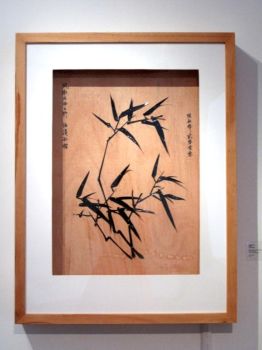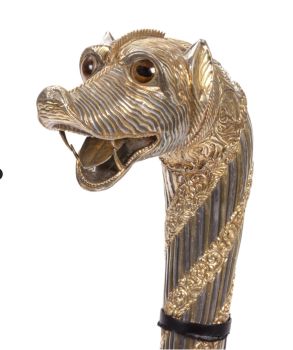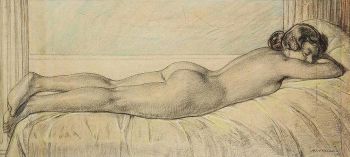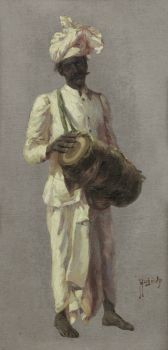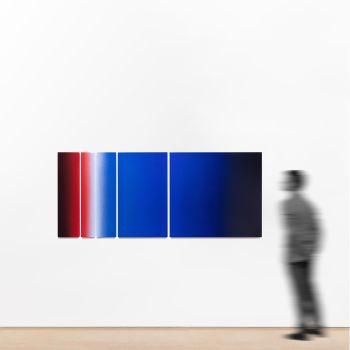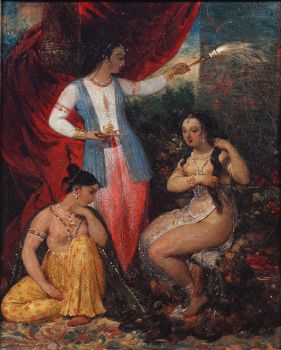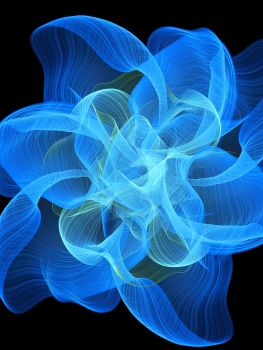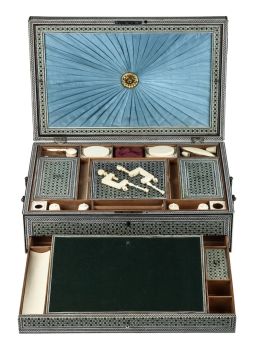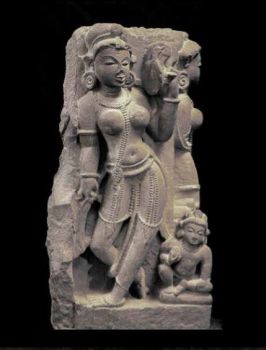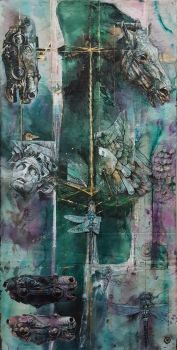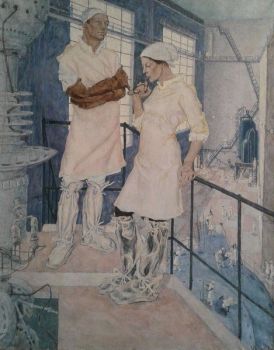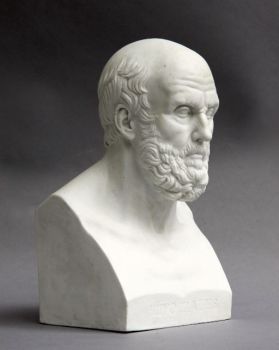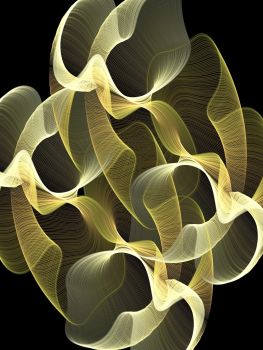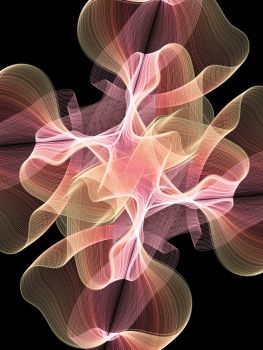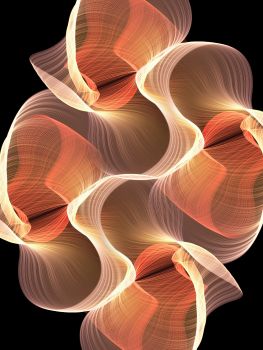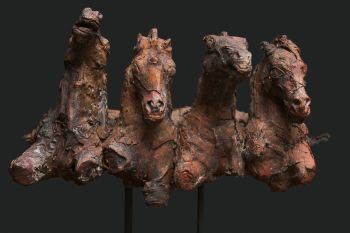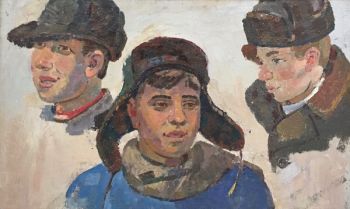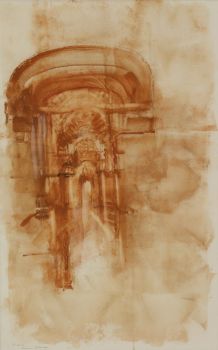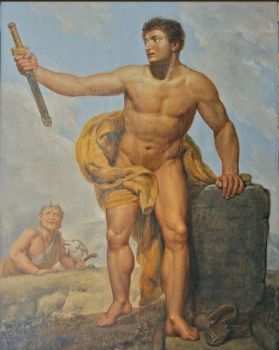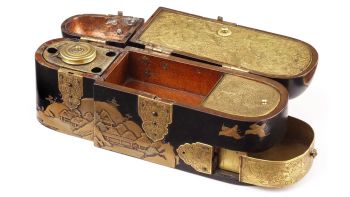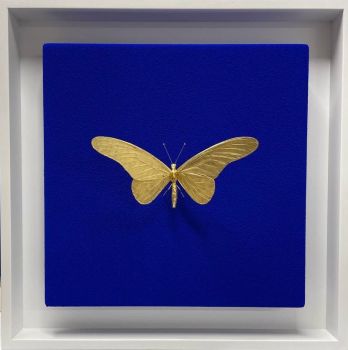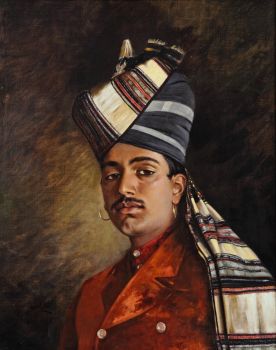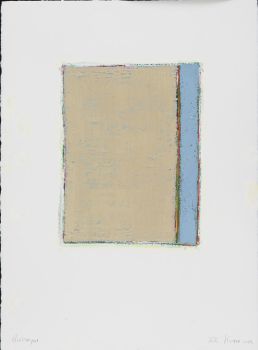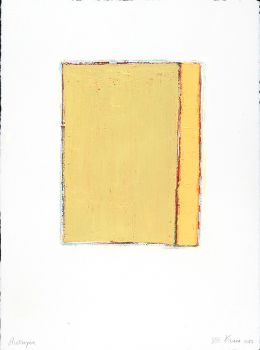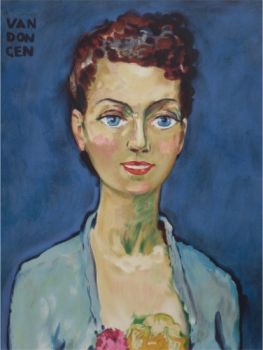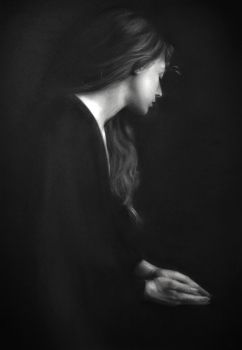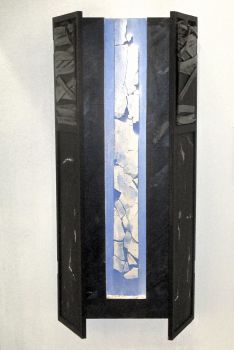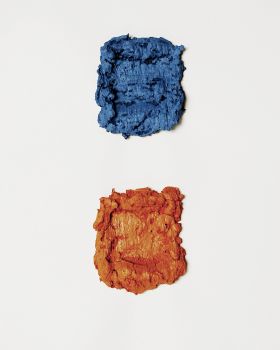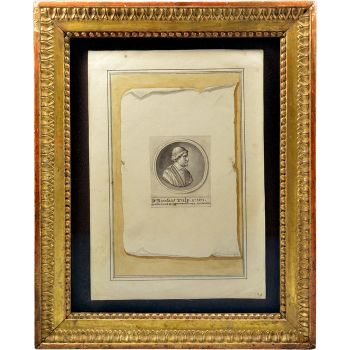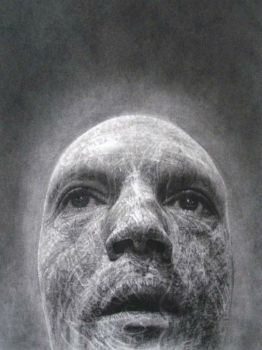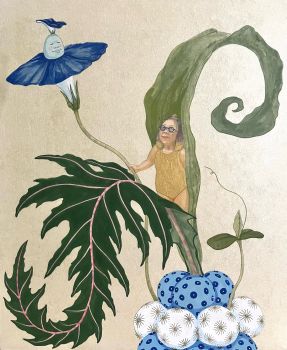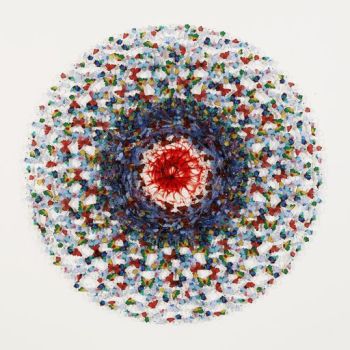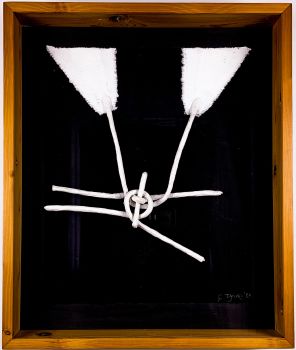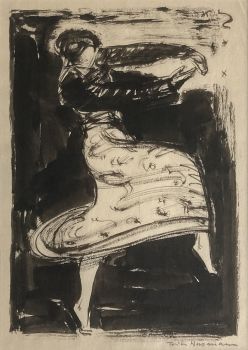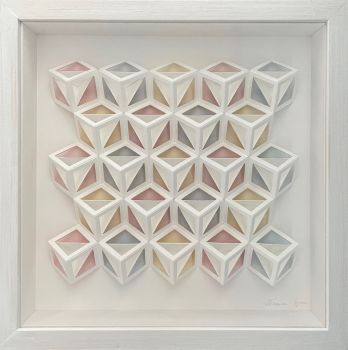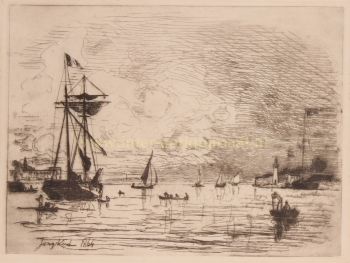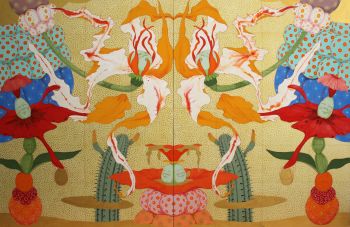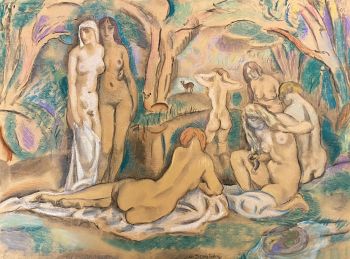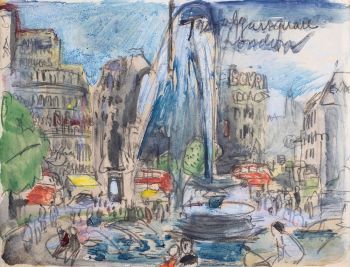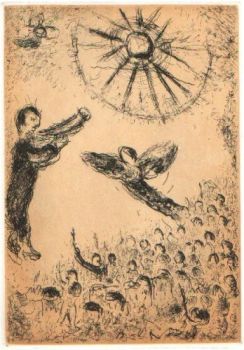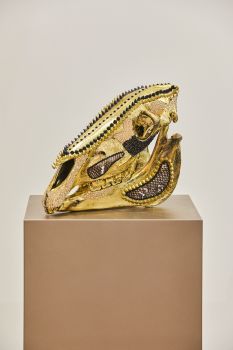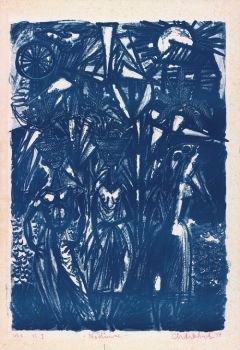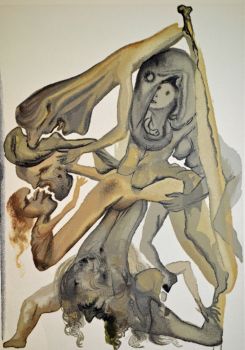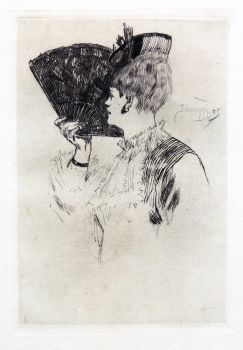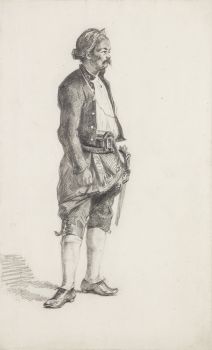Secreta secretorum Aristotelis; Medical secrets plus a largely imaginary Medieval European view of I 1528
Alessandro Achillini
PaperLeather
Currently unavailable via Gallerease
- About the artworkSecreta secretorum Aristotelis.
Including:
ARISTOTLE [pseudo]. Maximi philosophi ... de signis aquarum: & tempestatum.
ARISTOTLE [pseudo]. Maximi philosophurum ... de mineralibus.
ALEXANDER OF APHRODISIAS. De intellectu.
AVERROES. De beatitudine anime.
ACHILLINI, Alexander. De universalibus.
ALEXANDER THE GREAT [pseudo]. De mirabilibus Indie.
(Colophon: Lyon, Antoine Blanchard, 23 March) 1528. Small 8vo (15 x 10.5 cm). With a title-page with a decorated woodcut border, woodcut printer's device on last page, 6 woodcut initials. Contemporary blind-tooled sheepskin(?) parchment over wooden boards, in a panel design, brass catch-plates and anchor-plates (straps and clasps lost).
Collection of seven treatises on medicine and philosophy, edited by Alessandro Achillini (1463-1512). Four of these are pseudo-Aristotelian works that had been well known since the 13th century or earlier. The Secreta secretorum is here present in the translation of Philip of Tripoli; the De signis aquarum, ventorum et tempestatum on weather signs, was translated in the 13th century by Bartholomew of Messina; the third pseudo-Aristotle is De mineralibus on gems; the fourth, Alexandri Macedonis ad Aristotelem de mirabilibus Indie, is a fictitious letter by Alexander the Great to his teacher Aristotle, describing the wonders of India and the East. Three other similar "Indian tractates" are known, all of them connected with the romance of Alexander the Great at various points in history.
The three remaining treatises in the present work consist of a work by Alexander of Aphrodisias on the intellect, another by Averroes on the beauty of the soul, and a work by Achillini himself on universals.
Very good copy, with very slight browning and a few marginal spots, lacking the final blank. Binding lacking straps and clasps, and with the (restored?) spine damaged.
Baudrier V, p. 104; Stillwell 578; USTC 155810 (8 copies); cf. Lach II, book 2, p. 94 ; Thorndike V, pp. 47-48. - About the artistAlessandro Achillini (1463 or 1461, Bologna – 1512, Bologna) was a celebrated lecturer in medicine and philosophy at Bologna and Padua. He lived in Bologna the major part of his life. He was called ‘the second Aristotle.’ He was of a sincere nature and possessed a dynamic character. He was a formidable debater. His philosophical works were published in one volume (folio), in 1508, at Venice, and reprinted in 1545, 1551 and 1568 (enlarged editions). In 1506 he had to leave Bologna for political reasons, because he was a partisan of the Bentivoglio family. He left for Padua, where he became a teacher of philosophy from 1506 -1508). Achillini was also a distinguished anatomist, he wrote among others De humani corporis anatomia (The anatomy of the human body), Venice, 1516-1524. He was buried in 1512 in Bologna in the St Martin’s church.
Artwork details
Category
Subject
Material & Technique
Related artworks
Tilmanus Nicolaus Maastricht
Missale Romanum with Dutch silver mounts1788 - 1792
Price on requestJacob J. Roosjen SRI
Engelbert Kaempfer
ENGELBERT KAEMPFER BOOK1651 - 1716
Price on requestZebregs & Röell - Fine Art - Antiques
Antonie Derkinderen
Memory book Exhibition of Dutch Painting1892
Price on requestKunsthandel Pygmalion
Hermann Nitsch
"UNDER MY SKIN" Signed book incl. small artwork and DVD in a matching box2010 - 2014
Price on requestGallerease Selected
Engelbert Kaempfer
ENGELBERT KAEMPFER BOOK1651 - 1716
Price on requestZebregs & Röell - Fine Art - Antiques
LAWRENCE WEINER
"SKIMMING THE WATER [MENAGE A QUATRE]" Signed book plus small artwork2010 - 2014
Price on requestGallerease Selected
1 - 4 / 22Unknown artist
An Indian part-gilt silver-clad ceremonial sceptre or mace with a tiger’s head1850 - 1900
Price on requestZebregs & Röell - Fine Art - Antiques
 Curated by
Curated byDanny Bree
Unknown artist
A RARE COMPLETE INDIAN SADELI INLAID WORK AND WRITING BOX1800 - 1850
Price on requestZebregs & Röell - Fine Art - Antiques
Unknown artist
A rare Japanese export lacquer medical instrument box1650 - 1700
Price on requestZebregs & Röell - Fine Art - Antiques
1 - 4 / 24Unknown artist
Two study portraits of Mas Marco Kartodikromo 1900 - 1950
Price on requestZebregs & Röell - Fine Art - Antiques
1 - 4 / 24

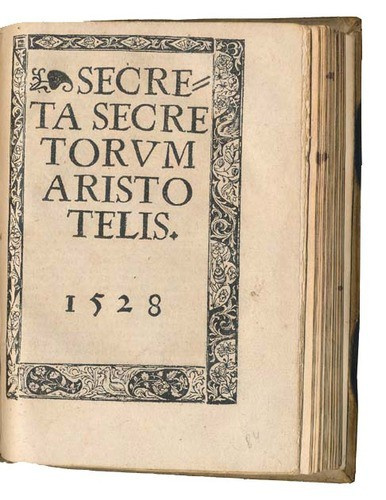




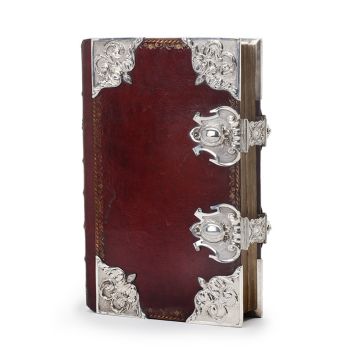
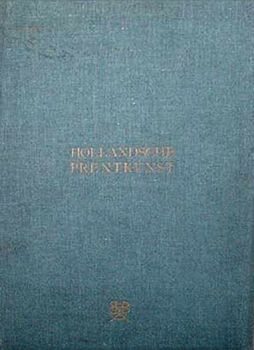
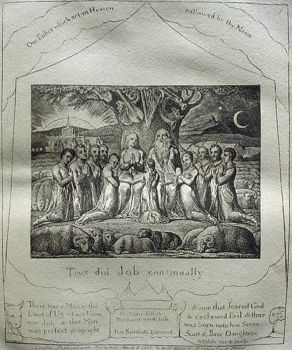
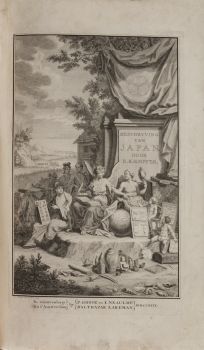
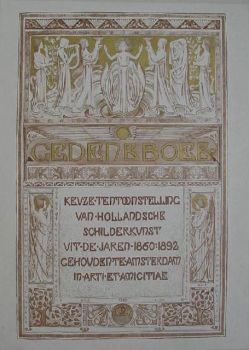
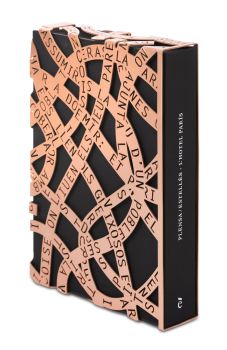
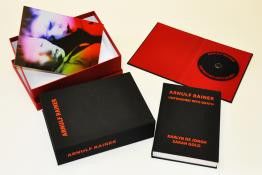

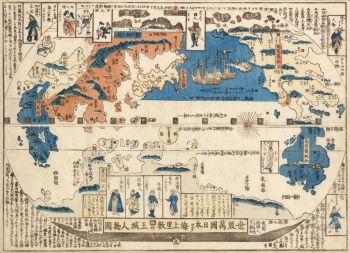
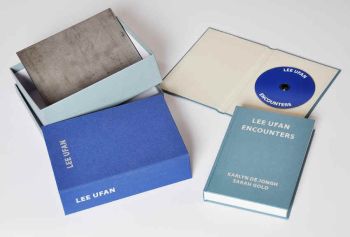
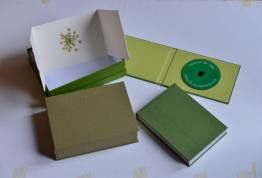
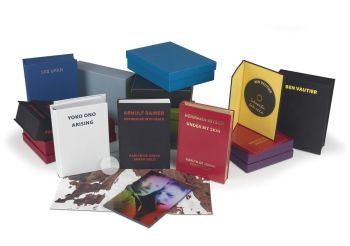
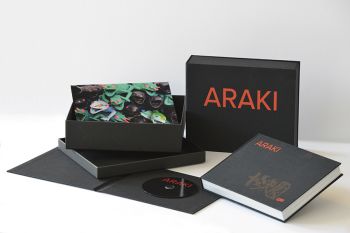
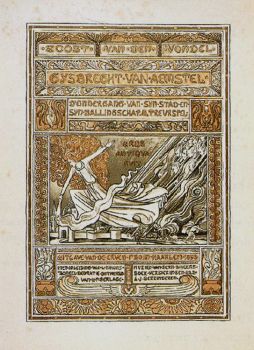
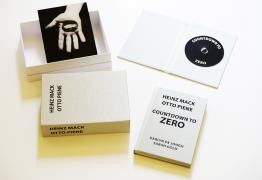

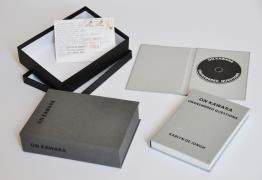
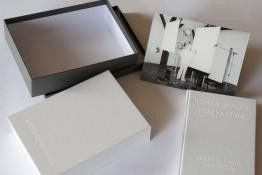
!["SKIMMING THE WATER [MENAGE A QUATRE]" Signed book plus small artwork by LAWRENCE WEINER](https://media-2.gallerease.com/images/442bfd5f-fc31-4e18-a2fa-ee0c08eade64/350x350/skimming-the-water-menage-a-quatre-signed-book-plus-small-artwork.jpg)
